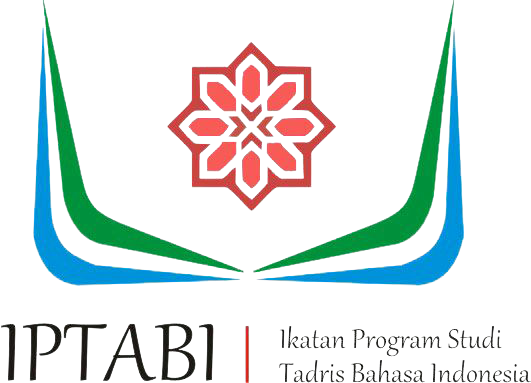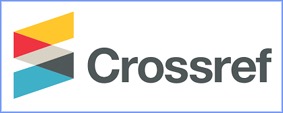Struktur Retorika Karangan Narasi Mahasiswa Pendidikan Guru Sekolah Dasar STKIP PGRI Lubuklinggau
DOI:
https://doi.org/10.29240/estetik.v1i2.636Abstract
Downloads
References
Kurniawan, R. (2013). Pola Retorika dalam Cerita Rakyat Nusantara Berdasarkan Analisis Generik Teks Labov (Disertasi Doktoral, Universitas Bengkulu, 2013).
Marta, I. N. (2014). Retorika. Yogyakarta: Graha Ilmu.
Noermanzah., Emzir., & Lustyantie, N. (2017). Ragam Retorika dalam Pidato Kenegaraan Presiden Republik Indonesia Susilo Bambang Yudhoyono dan Joko Widodo pada Bidang Pendidikan, 16 (2), 221-238. DOI: 10.24036/humanus.v16i2.8103
Nurgiyantoro, B. (2010). Teori Pengkajian Fiksi. Yogyakarta: Gajah
Mada University Press.
Rakhmat, J. (2002). Retorika Modern (Pendekatan Praktis). Bandung: PT Remaja Rosdakarya.
Ryan, M. (2007). Teori Sastra (sebuah Pengantar Praktis). Yogyakarta: Jalasutra.
Safnil. (2010). Pengantar Analisis Retorika Teks. Bengkulu: FKIP UNIB Press.
Sayuti, S. A. (2000). Berkenalan dengan Prosa Fiksi. Yogyakarta: Gama Media.
Tarigan, H. G. (2008). Berbicara sebagai suatu Keterampilan Berbahasa. Bandung: Angkasa.
---------------------. (2011). Prinsip – Prinsip Dasar Sastra. Bandung: Angkasa.
Titscher, Stefan, dkk. (2009). Metode Analisis Teks dan Wacana. (G. Thomas, dkk, Terjemahan). Yogyakarta: Pustaka Pelajar.
Downloads
Published
How to Cite
Issue
Section
Citation Check
License
Copyright (c) 2018 Sri Murti

This work is licensed under a Creative Commons Attribution-NonCommercial-ShareAlike 4.0 International License.
Authors who publish with ESTETIK : Jurnal Bahasa Indonesia agree to the following terms:
- Authors retain copyright and grant the journal right of first publication with the work simultaneously licensed under a Creative Commons Attribution-NonCommercial-ShareAlike 4.0 International License (CC BY-NC-SA 4.0) that allows others to share the work with an acknowledgment of the work's authorship and initial publication in this journal.
- Authors are able to enter into separate, additional contractual arrangements for the non-exclusive distribution of the journal's published version of the work (e.g., post it to an institutional repository or publish it in a book), with an acknowledgment of its initial publication in this journal.
- Authors are permitted and encouraged to post their work online (e.g., in institutional repositories or on their website) prior to and during the submission process, as it can lead to productive exchanges, as well as earlier and greater citation of published work (See The Effect of Open Access).






